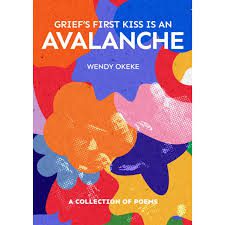An addition to Nigeria’s burgeoning field of children’s literature
Nana The Storyteller is a slim book made up of seven stories filled with magical forms and miraculous elements, which appeal to children and adults in one breath. The many illustrations accompanying each story add to the excitement and flavour. There is the impression of radiant sunshine which graces parts of the sometimes ‘funny, sad and scary’ stories.
One striking aspect of the work is the elderly man or woman by a lake or stream, who functions like a clairvoyant or seer. The mortar into which he peers as well as the lake become windows into or mirrors of another world, and the man raises his head and makes revelations to the visitor. Nana though a very brief work – the figures and metaphors it contains are living expansive forms – has all the fun elements and stirring situations that children love.
Abdullahi Ismaila, the author, does not follow a foreign model in the presentation of the stories, which draw from Nupe folklore. This is why he often begins the stories with the words ‘not once upon a time’ which shows that he is departing from the opening motif many are familiar with. In the first story, he uses the words ‘once there’. This is the closest he comes to employing the concept ‘once upon a time’ and is very significant.
The simple formula used to begin the narrative is ‘story, story, story,’ opening words -which involve call and response- that are used when stories are about to be narrated to children in many Nigerian communities. In Nana the Storyteller this is expressed as ‘cin cin cio’, words which are like a signature, somewhat onomatopoeic and do not necessarily have any meaning in the language.
This is a very interactive process and thrusts the child into the story, unlike the western model, where the reader may operate at a fair distance from the events, and is hardly called in to make a statement or to answer questions. The folktale in Africa is a very interactive event.
In Nupeland, folktales are not a one-off event or performance. They are bridges of a sort, and tend to connect one generation to the next, one age grade to the next. Folktales are living things. Ismaila then moves to quickly set the scene.
A village type environment unfolds which includes Nasir, a ten year old boy who loves stories, a popular Auntie who narrates the stories, to the admiration of the many children who form a circle around her. This helps to present the African woman as guardian and shaper of minds and souls.
At the end of each story are a series of questions, and one assumes that Nana puts these questions to the children. This makes the entire work read or function like a performance, and one dominant theme of the work is the law of sowing and reaping.
The first story titled The Soldier Ants beautifully illustrates this Law. In the story seven friends set out on a journey to a distant land. However, the seventh friend is the disobedient one. He drowns at the close of the account. The story is didactic for it explains the origins of soldier ants, and there is a message here for disobedient children.
The man who loved beautiful women also captures the theme of sowing and reaping. In the story the main character has three wives, but he has a weakness for women. He marries another lady who turns out to be a negative influence, and he is left blind, deaf and dumb by the close of the story.
The Drunken Hunter follows, and it shows how hunger for position and power can push a man to carry out an evil deed. Nnawo and Asibi is the next story which revolves around the theme of sowing and reaping. Nnawo is an obedient child, while Asibi is spoiled and pampered by her mother. This has implications, for very soon Nnawo is rewarded for her good deeds, while Asibi brings shame and embarrassment to her family.
The Three Greedy Friends as well as Evil Things Move At Night highlight the dangers of greed and disobedience. Generally, the stories mirror the hunger for material gain, as well as the rewards which fall to the obedient, the humble and respectful.
Ismaila intends to do more work in the future, excavating elements of Nupe folklore and infusing same into stories for children. He is Director of Communications at the Federal Inland Revenue Service (FIRS) and has first and second degrees in Literature from the Ahmadu Bello University, Zaria.




